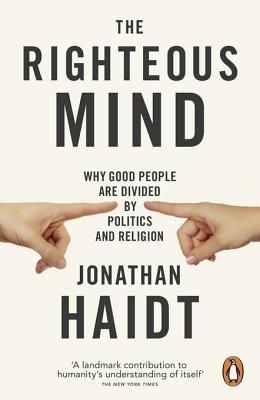More on this book
Community
Kindle Notes & Highlights
Humean model (reason is a servant) fits the facts better than the Platonic model (reason could and should rule) or the Jeffersonian model (head and heart are co-emperors).
Our moral thinking is much more like a politician searching for votes than a scientist searching for truth.
If you prefer fiction to nonfiction, or if you often enjoy conversations about people you don’t know, you are probably above average on empathizing. Systemizing is “the drive to analyse the variables in a system, to derive the underlying rules that govern the behaviour of the system.”14 If you are good at reading maps and instruction manuals, or if you enjoy figuring out how machines work, you are probably above average on systemizing.
Everyone cares about fairness, but there are two major kinds. On the left, fairness often implies equality, but on the right it means proportionality—people should be rewarded in proportion to what they contribute, even if that guarantees unequal outcomes.
Moral systems are interlocking sets of values, virtues, norms, practices, identities, institutions, technologies, and evolved psychological mechanisms that work together to suppress or regulate self-interest and make cooperative societies possible.


